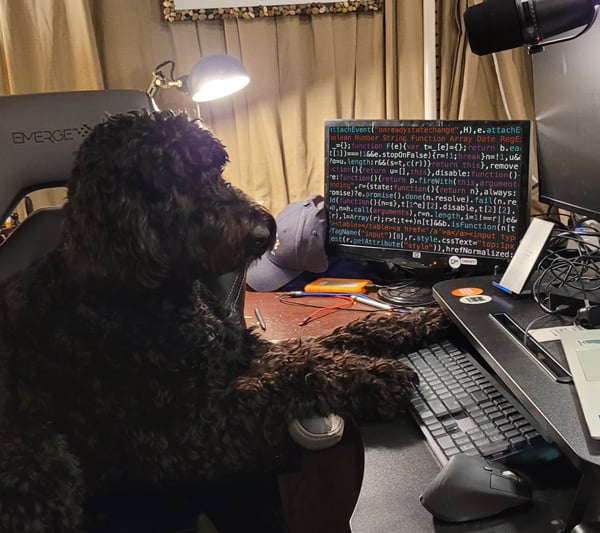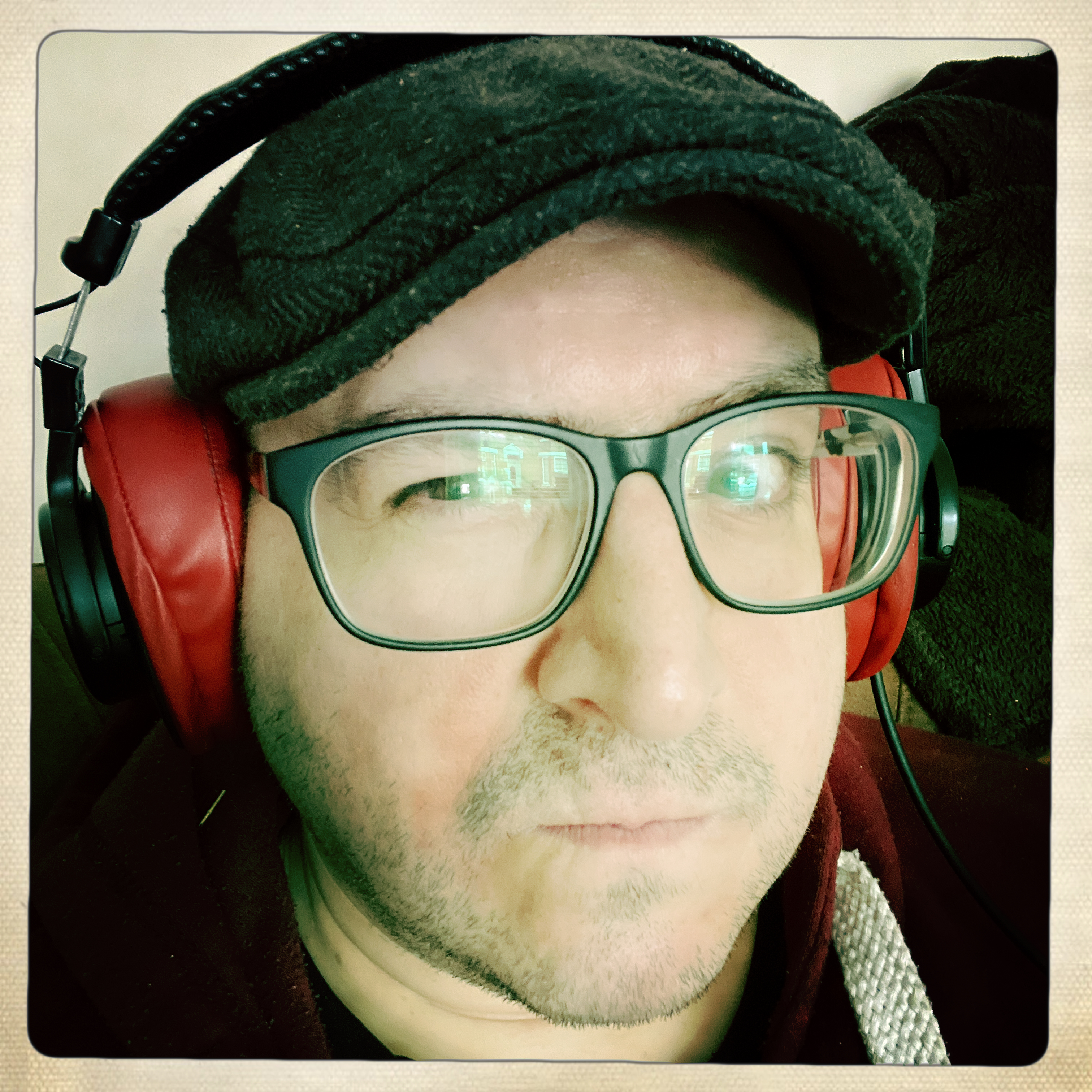Who here is parenting an ND child?
Has finding out their diagnosis also led to you or their other parent to a late diagnosis?
Any resources you’d like to share with the community?

I’m not a parent, however, my #1 recommendation for parents is: if the child is autistic, DO NOT listen to the many people who will push ABA (applied behavioral analysis) “therapy” on you. The organizations that push it are very good at making their bullshit look legitimate enough to get pushed by other organizations, including schools, but ABA was invented by the same person who invented gay conversion “therapy”, and adult autistic folks who were subjected to it as children overwhelmingly regard it as abuse.
That aside, it’s apparently really common for a child’s diagnosis to lead to a parent’s diagnosis too lol. Especially for parents who don’t fit the incredibly specific stereotypes.
For ADHD, I would like to recommend the youtube channel How to ADHD. I don’t always agree with it on all points (for example, I think it presents the differences between ADHD subtypes in too gendered of a way), but overall it’s a well-researched resource that is good at presenting information in an easily digestible way, and because it’s run by a woman with ADHD it avoids most of the issues that are common with resources run by neurotypical doctors and similar.

Thanks for the youtube recommendation.
I personally think it’s valuable to have a non-parent perspective. There are too many parents who don’t make an effort to seek out the viewpoints of ND folks. I could go on about how they’re probably the same parents who expect kids to be a certain way and live up to their own expectations rather than be individual people but that’s a rant for another day.

Yeah, high-functioning ASD.
If I were to give advice, the first three tips would be:
-Trust what your child is telling you, over what common sense is telling you.
-Never hesitate with getting a skilled psychiatrist involved if there are any issues with school, medical issues, eating, etc. Because their standard playbook is usually insufficient and by the time they manage to dial in to your child enough to help, a long time may have passed.
-If someone tries to tell you how to “cure” the child, hit them in the face with a pickaxe.

Amen. Encourage the kiddo to be open with how he’s feeling and help them advocate for themselves.

Agree on the all points. Before our son’s diagnosis, my son’s principal told us that our child was just being defiant and we needed to punish him severely every time he acted up. I’m ashamed to admit that we actually tried this. In our defense, we didn’t know what was going on and were getting desperate for answers. We stopped this quickly after it was obvious that this was doing more harm than good.
It turns out that taking a kid who is having an anxiety attack and punishing them for having an anxiety attack only makes the anxiety attack worse!
This same principal called my wife and I into his office to yell at us when we went over his head after he stonewalled us getting supports for our child (post-diagnosis). He definitely was the wrong person to listen to and we know SO much more now than we did then.

Man, that sounds awful. And not entirely unfamiliar. Even when trying to be helpful and understanding, the school has the “they’re just lazy and need more pushing” mindset that they can’t get out of.

It actually got worse. We found out why the principal was so angry at us for going over his head. He wasn’t in compliance with 504 plans and didn’t want school officials intruding on “his school” to find out.
Oh, also he was having an affair with one of the teachers and sexually harassed many others. That principal “disappeared” one day (forced to resign) and my wife and I used the opening to get our son more supports.

😬😬😬

I’m the father of a son with Asperger’s/High Functioning Autism. (He was diagnosed just before Asperger’s was folded into Autism in general.) As I was reading up on Autism to see what my son was going through, I realized something weird. All these books on Autism were talking about me.
Now, once always known I was different, but I chalked this up to “stunted social growth due to excessive bullying in high school.” Of course, this didn’t explain why I did some things into my mid-30’s.
I came to the realization that I’m Autistic. It was a tough realization to come to. My entire sense of self felt like it was destroyed. Everything I thought I knew about myself was wrong and I needed to rebuild my sense of self from scratch. Once I got over the shock, though, everything about my life made a lot more sense.
I never got a diagnosis, though, for various reasons. It would cost money when money was tight. It wouldn’t have helped my son and I also had (unknowingly) developed coping mechanisms. So I’m undiagnosed, but 100% positive that I’m ND.

It’s profound, realising that you’re autistic .
I wonder why some of us find it so traumatic, and others so liberating?
Maybe it’s to do with how it happens. For me, I came to this self discovery after struggling with severe mental health problems that didn’t seem to have any explanation.
Realising I’m autistic was an incredible release from self blame.
I think there’s a unique journey for parents of autistic children, though. And not an easy one.
Be kind and patient with yourself.
@Zumbador I find the realization of my #neurodivergence liberating in the it lifts the veil of mystery around my challenges. But there are still challenges. Now at least I might try improving that state. @TechyDad @neamhsplach @neurodivergence

@Zumbador @TechyDad @neamhsplach A lot of it may boil down to this:
Was #ActuallyAutistic a label chosen *by* you, as a result of accurate and compassionately-communicated information?
Or was it chosen *for* you, by people who were more interested in trying to “solve the problem” that is you, and are ultimately not motivated by acting for your own well-being?
(I spent most of my life in the second camp, and even on the best days, the term “autistic” is emotionally fraught for me.)

For me, it was traumatic in the short term, but liberating in the long term and I chose it for myself.
In the short term, it was traumatic because it meant everything I thought I knew about myself was wrong. When you get to your 30’s, you have a pretty set in stone view of who you are and why you do things. Realizing that I’m autistic shattered that self view. Suddenly, reasons why I thought I did many things were wrong and were replaced by other reasons.
This was traumatic, but I eventually (over a few months) rebuilt my sense of self to include autism. This rebuilt sense of self was stronger than before. Thus, the short term trauma led to longer term benefits for me.
Would I want to go through this sense of self shattering again? No, but I’m glad I went through it then.

Very true. And definitely something late realised autistic people are often not aware of.
But I meant to ask a different question, which is why people in the first group (realising they’re autistic vs having been diagnosed by someone else ) sometimes have such different experiences.

In my case, my short term trauma was because my sense of self was shattered. I had explanations for why I did a lot of things and suddenly those explanations were replaced by other explanations. My entire view of who I was was thrown into question.
This might not be that traumatic when you’re a child - you’re still discovering who you are then. However, when you’re in your 30’s, your sense of who you are is usually set. To have that demolished was hard to deal with, even if it was beneficial in the long term.

@Zumbador @dpnash @TechyDad @neamhsplach@beehaw. org
Perhaps it’s as simple as, did you come to realise you were autistic because you were searching for an answer. And whilst autism might not be the one you wanted it is still a relief to have one. Or, was the realisation thrust upon you, perhaps by seeing yourself in your child. In which case you’re having to deal with something unsought for.
@TechyDad @neamhsplach I hear many stories of parents discovering their own #neurodivergence through trying to protect, help, and advocate for their children’s (or other family member’s) needs. You are not alone. @actuallyautistic @audhd @Adhdinos #actuallyautistic #autism

Not a parent, but I got diagnosed when I was 30 and it did help my mom get some insight in her own struggles and she suspects she might also be neurodivergent.
The recognition you can get from talking about your experiences and struggles can definitely help other people either with diagnosis or just general understanding.
How did your mum manage finding out after all those years? Did she pursue a formal diagnosis or any external supports?

Well she’s also dealing with some other stuff so she’s not in the right headspace to deal with the whole diagnosis proces. But it has gives some clarity to why some things are so difficult. And it has legitimised some issues for her, such as dealing with forgetfulness and choas in her head. So before she was pushing it away a bit more and now she feels she can accept it just a little bit. Still a process though

Obligatory “not a parent”, but my parents worked their butts off to make sure I turned out okay so I think I can contribute a little. I wouldn’t blame people for feeling like I was spoiled.
-
I’ve been lucky enough to be in Massachusetts which is the home of the Aspergers / Autism Association.
-
My parents took advantage of my early diagnosis to educate my teachers, at least in Elementary and early Middle School. A few teachers in particular became unofficial advocates for me, and they helped develop an IEP for me (Massachusetts has a SPED program that it actually funds).
-
Practical things we did (that I can remember) outside of the IEP stuff mostly revolved around making sure I was “at my best”, my personal best, rather than outright forcing me to be someone I wasn’t. For instance:
-
Make sure I drink enough water (Seriously dehydration + a 10 yo with autism not a good combo)
-
Do a little meditation every day (it’s a workout for your frontal lobe! Great for learning to manage sensory problems without being an awful ABA thing)
-
Incorporate “exposure therapy” into my day in little, low-pressure ways. For instance I was a very picky eater, my mom made a deal with me that I always had to try whatever was on her plate but I could always spit it out into a paper towel or something if I couldn’t deal with it.
-
Literally had a period on some days in middle school (OK, this was an IEP thing but still) where the school stuck the antisocial kids in a room together to just hang out. There were three of us, the other two were almost certainly ND as well. We ended up being very good friends and I remained friends with one of them until the end of HS.
I guess my main point is that I believe I experienced a happy medium where my parents firmly made sure that I kept growing, but didn’t always force me into situations I hated. They respected my boundaries as much as they could while still pushing me to have a good life. I won’t claim that I was “fixed” but I went from a kid who bashed his head against concrete when he was upset and had mental breakdowns over someone breaking the rules in Monopoly to an adult who a lot of psychologists wouldn’t diagnose with autism (because they’re uninformed, not because I was cured). I’m still a barely functional adult, but I’d be an even less functional adult otherwise.

Adult diagnosed at 51 and I just want to second the recommendation for AANE - they’re based in MA, but they’ve literally gone global during the pandemic - zoom sessions with people from all over the world. And very targeted support groups for different types of individuals as well as family.
-

Not a parent but here’s my own personal advice as someone with ADHD and some autistic traits as well as someone who’s worked with Neurodivergent youth and has received training for such work as well.
I would like to not only echo the weariness of ABA but also of note to be very weary of any medical professional who seems to focus more so on “normalizing” their behavior, specifically in the sense of trying push back against potential behavior and traits that aren’t inherently harmful, and if they are harmful in some way they are trying to push back against it entirely instead of pushing for more healthy means. An example would be stimming, stimming is absolutely fine and healthy on its own, but if the kid is stimming in a potentially unhealthy way they shouldn’t be directed against stimming entirely rather they should be figuring out ways to make their stimming behavior safe and healthy.
Another thing that applies not just to medical professionals of any kind but anyone in general, be VERY mindful of those who infantilize your child. In the sense of who seem to deny your child’s own agency or autonomy from the language they use and the interactions they have with you and your child. A big example would be for instance talking as if your child is unable to comprehend what is being discussed with your child right next to you and clearly able to understand what is being said. Another example would be questioning their autonomy, and just generally treating them in a way that is inherently condescending as if they are toddler when they clearly aren’t. Another would be in interactions when you know your child is clearly capable of independence, they try to insert themselves in ways to “help” as if they are completely helpless and it’s an instance you clearly know it isn’t a support need they have. Individuals who do this aren’t always doing this as a means to be malicious, but those who do this are more often than not the ones to do so maliciously. It is a form of ableism, whether intentional or not and if they aren’t receptive of correcting that behavior its likely problems with arise with them.
Familiarize yourself with your rights as a parent in regard to school and the rights your child has within your jurisdiction. As well as make sure to check in occasionally with your child as to how they are being treated in school and if they actually being provided any accommodations they are required to give your child. The above pops up quite a lot in schools, with quite an alarming amount of education professionals believing that due to their false perception that your child has a lack of autonomy that they can do whatever they really want to without your child telling anyone.

Has finding out their diagnosis also led to you or their other parent to a late diagnosis?
I’ve gone the other way around.
Having gotten my ADHD diagnosis at 39, it’s made me 90% certain that the struggles my kid had throughout school were as a result of undiagnosed ADHD. He’s pretty sure that’s the case too, but unfortunately he’s now 19, so on the adult waiting list which may be a few years long at this point.
He’s just finished the first year of a law degree though, so I guess he’s managing to deal with it pretty well.
With regards to resources; a hearty second here for How To ADHD. It’s a great channel, with some really helpful information.

My lo has ADHD and likely ASD (physician doesn’t think it is worth pursuing diagnosis at this time for a variety of reasons).
I was actually in the process of pursuing an ADHD diagnosis for years before my child was diagnosed - I ran into a lot of hesitation until I moved to a less conservative area (not sure why). I finally found a physician who listened to me but I think having my child diagnosed helped the doctor take me more seriously.
We’ve got an ND family counselor and they have been valuable for helping us advocate for our child at school, providing specific resources for specific challenges but mostly for continuously championing the ways our child is successful and unique. When you’re in the trenches about day to day life things, it’s nice to have a reminder to focus on the many ways your kid is amazing.
I wish there were more resources out there specifically for ND parents with ND children. While I share and can relate to a lot of the same challenges, there are definitely things that are harder for my child than for me and I wish I had better tools to help them.

Autistic parent of an ADHD child here, hello! I believe that the kiddo’s diagnosis immensely helped her mother get one as well. Stuff like that takes a while to sink in, but IMO, it’s very liberating when you get to see a professional about your struggles & go, “oh, THAT’S what this is!” I also believe that my own diagnosis helped our child.
I actually wasn’t diagnosed until I was already well into my 20’s & from that POV, I couldn’t be happier that offspring was diagnosed early. It’s not all roses for her either, of course, but the constant blaming (self & otherwise) & crushing sense of isolation is something I wouldn’t wish on anyone.
Ironically, due to my own upbringing, offspring’s executive dysfunction can sometimes be a little challenging for me. Having been seen as dumb & lazy haunts me every day, but I’m doing my best. Our relationship is wonderful & we often laugh at neurodivergent memes together.
It’s funny too, because offspring has been suspected of being on the spectrum, while I’ve been suspected of having an attention disorder. Unfortunately though, the quality of my care is currently such that it’s impossible to be probing further.

I’ve been ND (ADHD) since I was a kid, so it wasn’t surprising when my kiddo was diagnosed at 4/5 yrs of age. Having it myself does help to understand what he’s going through.


